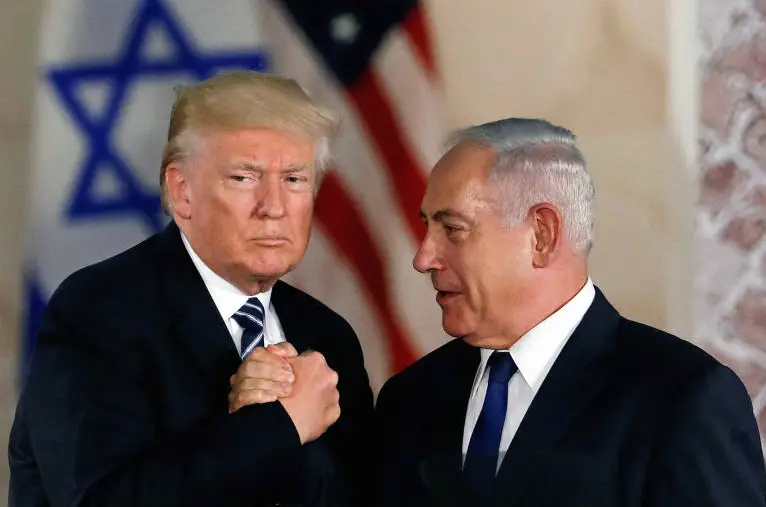Just like in 2022, following Russia’s invasion of Ukraine, the recent conflict between Israel and Iran has once again brought war into the public debate. The use of force by the Israeli government, led by Benjamin Netanyahu, was itself considered an extreme measure in various decision-making circles around the world. The randomness of the selected targets for missile and drone strikes demonstrated, as in Gaza, the intention not only to weaken Iran’s ability to respond but also to undermine its political regime.
Netanyahu’s connections with the United States, as well as his ties to regional political and religious elites, made it clear that his ultimate goal was not merely to dismantle Iran’s nuclear program. In reality, he sought to use force and devastation to create a new geopolitical reality in the Middle East. Over the past decade, heads of state and government have taken similar positions, becoming increasingly inflexible in their foreign policies. In doing so, they choose to hinder diplomatic conflict resolution and provoke ever more devastating escalations of violence. Netanyahu’s justification for waging a preventive war against Iran is the latest—and perhaps final—instance in which he crossed the line between diplomacy and war.
By dragging Donald Trump into the war he himself initiated, Netanyahu made it clear that his intention was to destabilize the Iranian regime and force a change of government and political system in the country of the ayatollahs. Since 2023, conversations have been recorded between the Israeli government and the heir to Iran’s last monarch, as well as with Palestinian sheikhs seeking to supplant the Palestinian Authority in exchange for Israeli political support. While the war that Trump dubbed the “Twelve-Day War” did not yield a clear victory for either side, it did have the power to shift important standards in the conduct of foreign policy worldwide. Several countries may now see their elites seeking alignment with global powers in attempts to reclaim or gain power.
Latin America is not immune to this process. The attempted coup in Bolivia in 2019 by Jeanine Áñez had the explicit support of the Argentine government under Mauricio Macri. Juan Guaidó, for his part, was recognized as the legitimate ruler of Venezuela between 2019 and 2022 by Western countries, despite having self-proclaimed himself president. Opposition groups of various ideological backgrounds have used such positions to justify radical stances favoring the overthrow of governments or claims of electoral fraud, even when they face no persecution in their own countries nor legal proceedings for committed crimes.
This is the primary risk posed by the recent international conflict in the Middle East. By linking a matter of national security to the elimination of an entire political regime in another country, hundreds of kilometers from its own territory, Netanyahu has used war as a legitimate tool of foreign policy. This sets a precedent for any country to use force simply to overthrow another government—not for democratic reasons or due to human rights violations, but to assert its will and power. In a scenario of growing implementation of so-called “maximum pressure” policies, particularly by the United States, this is a possibility Latin American governments cannot afford to overlook.
One of the agreements that brought stability after World War II was the so-called “negative war pact.” The creation of a set of international organizations, including the UN, was seen by global powers—not necessarily allies—as a way to prevent war. While they did not lead to a world of greater cooperation, these institutions and agreements could at least keep international conflicts from being resolved solely by force. Many conflicts occurred between the beginning of the Cold War and the end of the 2010s, but the use of force had to be justified by some form of collective benefit, whether for the international community or for oppressed populations and victims of attacks by their own governments.
What we are witnessing now is dangerous for populations across the globe. Gradually, over the last few decades, several countries have abandoned such justifications for the use of violence. Even in interventions like those in Ukraine and Libya, for instance, Russia and the United States tried to present the use of force as a necessary means for the common good. By using force and indiscriminately attacking infrastructure and civilian populations, what Netanyahu’s government is now establishing on the international stage is a precedent for the return of total war. Devastation—not political or military defeat—becomes the horizon, just as civil war deeply marked Latin America throughout its political processes in the 19th and 20th centuries.
Former UN Secretary-General Dag Hammarskjöld stated that the institution was not created to take us to heaven, but to save us from hell. The rehabilitation of total war as an instrument of foreign policy could be leading us down the exact path he sought to avoid. In this context, Latin America could cease to be merely a battleground for favors between two powers and become the stage for increasingly forceful attempts to interfere in its internal affairs. Trump, with his “reciprocal tariffs,” has already made clear the direction he intends to pursue. For the sake of our autonomy and democracy—hard-won through so many struggles and disputes—Latin American governments should align not around devastation, but around the defense of cooperation.
*Machine translation proofread by Janaína da Silva













